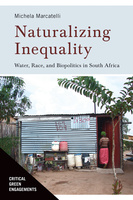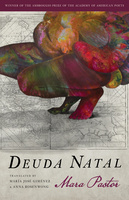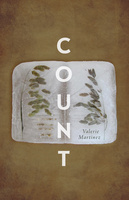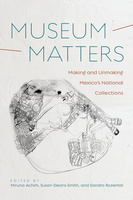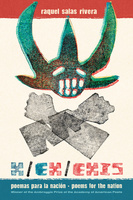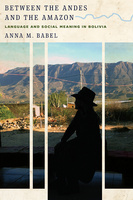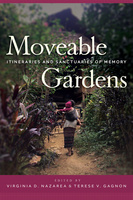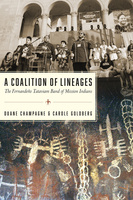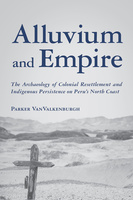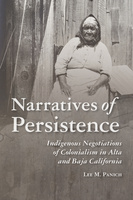The University of Arizona Press is the premier publisher of academic, regional, and literary works in the state of Arizona. They disseminate ideas and knowledge of lasting value that enrich understanding, inspire curiosity, and enlighten readers. They advance the University of Arizona’s mission by connecting scholarship and creative expression to readers worldwide.
Naturalizing Inequality
Water, Race, and Biopolitics in South Africa
The Beloved Border
Humanity and Hope in a Contested Land
Deuda Natal
Count
Museum Matters
Making and Unmaking Mexico’s National Collections
Museum Matters tells the story of Mexico’s national collections through the trajectories of its objects. The essays in this book show the many ways in which things matter and affect how Mexico imagines its past, present, and future.
x/ex/exis
poemas para la nación
Science Be Dammed
How Ignoring Inconvenient Science Drained the Colorado River
Between the Andes and the Amazon
Language and Social Meaning in Bolivia
The Pluto System After New Horizons
Letras y Limpias
Decolonial Medicine and Holistic Healing in Mexican American Literature
We Are Not a Vanishing People
The Society of American Indians, 1911–1923
The early twentieth-century roots of modern American Indian protest and activism are examined in We Are Not a Vanishing People. It tells the history of Native intellectuals and activists joining together to establish the Society of American Indians, a group of Indigenous men and women united in the struggle for Indian self-determination.
Moveable Gardens
Itineraries and Sanctuaries of Memory
Divided Peoples
Policy, Activism, and Indigenous Identities on the U.S.-Mexico Border
Calling the Soul Back
Embodied Spirituality in Chicanx Narrative
A Coalition of Lineages
The Fernandeño Tataviam Band of Mission Indians
The experience of the Fernandeño Tataviam Band of Mission Indians is an instructive model for scholars and provides a model for multicultural tribal development that may be of interest to recognized and nonrecognized Indian nations in the United States and elsewhere.
Alluvium and Empire
The Archaeology of Colonial Resettlement and Indigenous Persistence on Peru’s North Coast
Alluvium and Empire examines the archaeology of Indigenous communities and landscapes that were subject to Spanish colonial forced resettlement during the sixteenth century. Written at the intersections of history and archaeology, the book critiques previous approaches to the study of empire and models a genealogical approach that attends to the open-ended—and often unpredictable—ways in which empires take shape.
Famine Foods
Plants We Eat to Survive
How people eat today is a record of food use through the ages, and Famine Foods offers the first ever overview of the use of alternative foods during food shortages. Paul E. Minnis explores the unusual plants that have helped humanity survive throughout history.
The Hatak Witches
A baffling museum murder that appears to be the work of twisted human killers results in an unexpected and violent confrontation with powerful shape-shifters for Choctaw detective Monique Blue Hawk. Blending tribal beliefs and myths into a modern context, The Hatak Witches continues the storyline of Choctaw cosmology and cultural survival that are prominent in Devon A. Mihesuah’s award-winning novel, The Roads of My Relations.
The Diné Reader
An Anthology of Navajo Literature
The Diné Reader: An Anthology of Navajo Literature is a comprehensive collection of creative works by Diné poets and writers. This anthology is the first of its kind.


